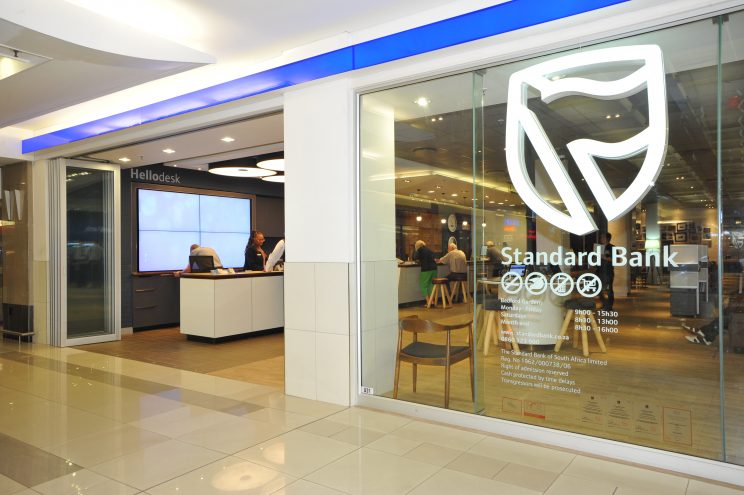Standard Bank profits jump 35%

South Africa’s largest lender by assets, Standard Bank, posted a 35% jump in headline earnings on Thursday, partly due to higher interest rates. However, it added that it expects interest rates to curb demand and constrain balance sheet growth for the remainder of the year.
The banking group, which has benefitted from the endowment effect of higher interest rates, with the South African Reserve Bank’s (Sarb) 475 basis point increase in the repo rate since November 2021, said it expects net interest margin tailwinds to dwindle.
“We expect high interest rates to constrict demand and balance sheet growth. Interest rates are likely to have peaked, and net interest margin tailwinds are expected to fade,” Standard Bank said.
The Sarb’s aggressive policy-tightening action has helped lift bank profits significantly as repaying debt rapidly became more expensive.
The surge in earnings saw resulted in headline earnings of R21.2 billion for the six months ended June 2023,
Interest income grew 34% to R46 billion but is expected to moderate to low teens. In contrast, trading revenue increased 36% to R11.7 billion during the reporting period and is projected to decline by double-digits, barring more market volatility and increased client activity.
The bank said inflation and interest rate pressures, which depressed consumer demand, were exacerbated by slow government policy reforms, poor service delivery, and increased electricity and logistics disruptions.
Its research suggests that interest rates will be kept at 8.25% for the remainder of the year and that the South African economy will grow by 0.8%.
During the period, the company grew revenue by 27% while its loan and advances to customers grew 9% to R1.4 trillion, driven by strong activity in its corporate and sovereign portfolios.
“All other portfolios recorded muted growth as client demand declined, approvals declined due to client affordability constraints linked to higher interest rates, and disbursements slowed,” Standard Bank said.
It added that the effects of higher interest rates, which drove instalments up and affordability down, were most noticeable in its home loan book.
However, it said it maintained focus on accelerating collections efforts and implemented relevant debt affordability solutions for its clients.
The board approved an interim dividend of 690 cents per share, translating to an interim dividend payout ratio of 54%.
Shares in Standard Bank were little changed during early morning trade and were down by a slight 0.05% to trade at R193.50.

